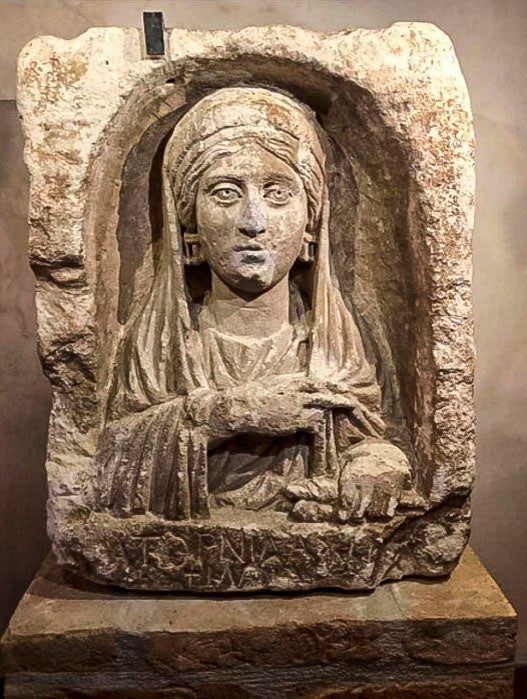Italy returns ancient stele, illegally exported, to Turkey
Italy has returned to Turkish authorities a funerary stele dating from ancient Roman times because investigation determined that the artifact was illegally excavated from southeastern Turkey

Your support helps us to tell the story
From reproductive rights to climate change to Big Tech, The Independent is on the ground when the story is developing. Whether it's investigating the financials of Elon Musk's pro-Trump PAC or producing our latest documentary, 'The A Word', which shines a light on the American women fighting for reproductive rights, we know how important it is to parse out the facts from the messaging.
At such a critical moment in US history, we need reporters on the ground. Your donation allows us to keep sending journalists to speak to both sides of the story.
The Independent is trusted by Americans across the entire political spectrum. And unlike many other quality news outlets, we choose not to lock Americans out of our reporting and analysis with paywalls. We believe quality journalism should be available to everyone, paid for by those who can afford it.
Your support makes all the difference.Italy on Friday returned to Turkish authorities a funerary stele, dating from the second century and carrying a loving inscription to the dead woman's spouse, after investigation determined that it was illegally excavated from southeastern Turkey.
Italy’s specialized Carabinieri paramilitary police art squad said it had determined after extensive investigation that the object was illegally exported, eventually winding up in a private home in Florence, Italy, after being purchased in France.
The art squad for decades has been in the vanguard of efforts to ensure that artistic and archaeological works are returned to their rightful country of provenance if exported without permission. Its efforts have resulted in hundreds of artworks and artifacts being returned to Italy from prestigious museums and from private collectors worldwide.
The stone work depicts a noblewoman, wearing a veil and a tunic. Her right hand is placed on her left breast. Under the bust refiguring the deceased is an inscription in ancient Greek reading, “Satornila, the wife who loves her husband, farewell!”
The stele was illegally excavated near the ancient city of Zeugma, in what is near Gaziantep, in present-day southeastern Turkey, the police said. It dates from the mid-to-late second century, the Carabinieri said.
Zeuguma, on the Euphrates River, was first an ancient Greek settlement and later became part of the Roman Empire. It was founded around 300 B.C. by a general of Alexander the Great.
The stele was handed over to the Turkish ambassador to Italy for return to Turkey.